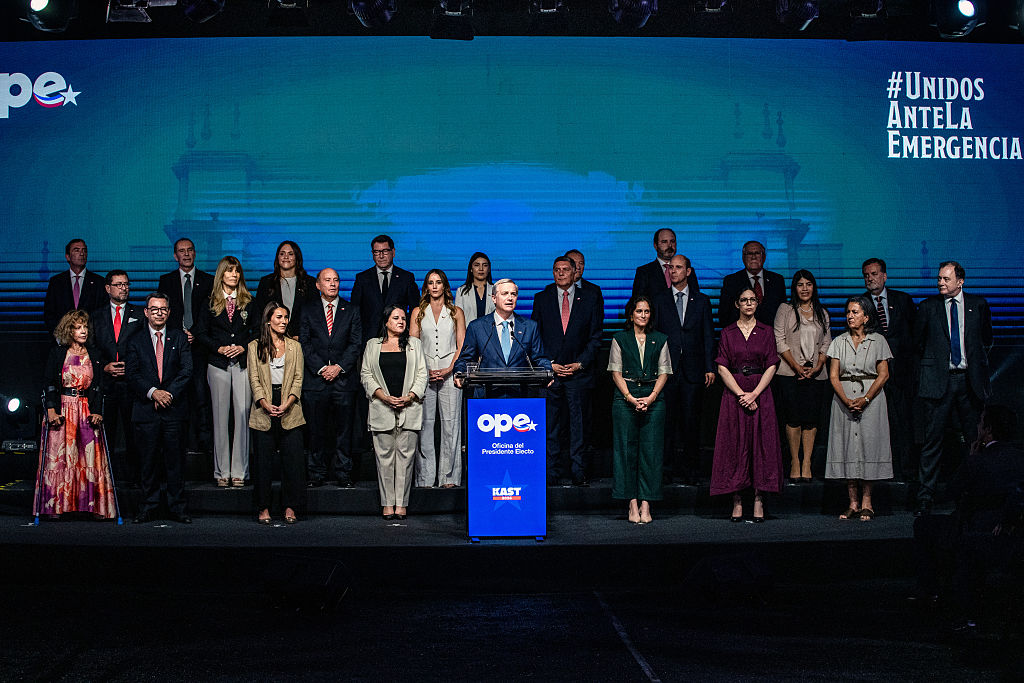Honduras Deal Flounders
Honduras Deal Flounders
Deposed leader Manuel Zelaya declared a U.S.-brokered accord “dead” after the de facto government announced a cabinet and declared the provisions of the deal accomplished. The latest events place Washington at the center of the long-running crisis.
A week ago, a U.S.-brokered deal was hailed as a “breakthrough” for its potential to conclude a four-month-old tug-of-war for the country’s presidency. But today—the morning after de facto leader Roberto Micheletti announced the formation of a unity government without the ousted Manuel Zelaya—the deposed president declared the accord “dead.” Meanwhile, U.S. Senate Foreign Relations Committee member James DeMint (R-SC), who opposed the White House’s Honduras policy, lifted a hold on the nominations of Arturo Valenzuela for assistant secretary of Western Hemisphere Affairs and Thomas Shannon as U.S. ambassador to Brazil.
Shannon, the current assistant secretary, led a delegation to Tegucigalpa last week to help negotiate the Guaymuras Dialogue Agreement. The pact opened the door for the reinstatement of Zelaya, ousted June 28 by the military after attempts to push through a reelection referendum deemed unconstitutional by the country’s Supreme Court. But the October 29 deal required Honduras’ Congress to vote on Zelaya’s return to office and legislators failed to set a date for the vote. With the accord calling for a reconciliation government before week’s end, Micheletti announced the new government and cabinet without including Zelaya or his supporters. The website of the Honduran presidency shows a photo of Micheletti in presidential sash proclaiming him president to January 27, 2010—Honduras’ next inauguration date.
With U.S. fingerprints on the latest developments, Washington finds itself in a difficult situation. The United States—like most countries in the hemisphere—previously said it would not recognize the results of the November 29 election if carried out by the de facto government. However, U.S. officials indicated that they would recognize the elections with signature of the pact, even though it does not make Zelaya’s reinstatement mandatory. “They are now, in fact, part of the problem. I think they may have put themselves in a bigger pickle than if they hadn’t” played such a major diplomatic role, AS/COA’s Christopher Sabatini told the Christian Science Monitor.
In an interview with the Associated Press, a State Department spokeperson said the accord "is not dead, but maybe sleeping for the time being." He added that "[b]oth sides need to return to the table and negotiate the formation of a government of national unity." COA's Eric Farnsworth remarked that, should Washington fail to create a path to legitimacy for the elections, "[t]hen Honduras degenerates into perpetual political crisis, and that's the last thing Honduras needs."
Still, the accord did allow for DeMint to lift his hold on the nominations of Valenzuela and Shannon. DeMint, in November 5 remarks on the Senate floor released his holds, saying: “I am happy to report the Obama Administration has finally reversed its misguided Honduran policy and will fully recognize the November 29 elections.” Valenzuela, former director Georgetown University’s Center for Latin American Studies, won confirmation today. Shannon remains in confirmation limbo; Senator George LeMieux (R-FL) is now holding up the process in protest of the White House's Cuba policy.
For now, Zelaya, who snuck back into Honduras on September 21, continues to take refuge in the Brazilian Embassy in Tegucigalpa.
Learn more:
- “Here We Go Again: Nicaragua-Honduras-Reelection,” AQ blog, Christopher Sabatini, November 6.
- Text of October 29 accord.
- CNN interview with U.S. Assistant Secretary of Western Hemisphere Affairs Tom Shannon about the accord and Washington’s position on November 29 elections.
- Website of the de facto leader Roberto Micheletti.
- Micheletti’s November 5 speech announcing the new government.








